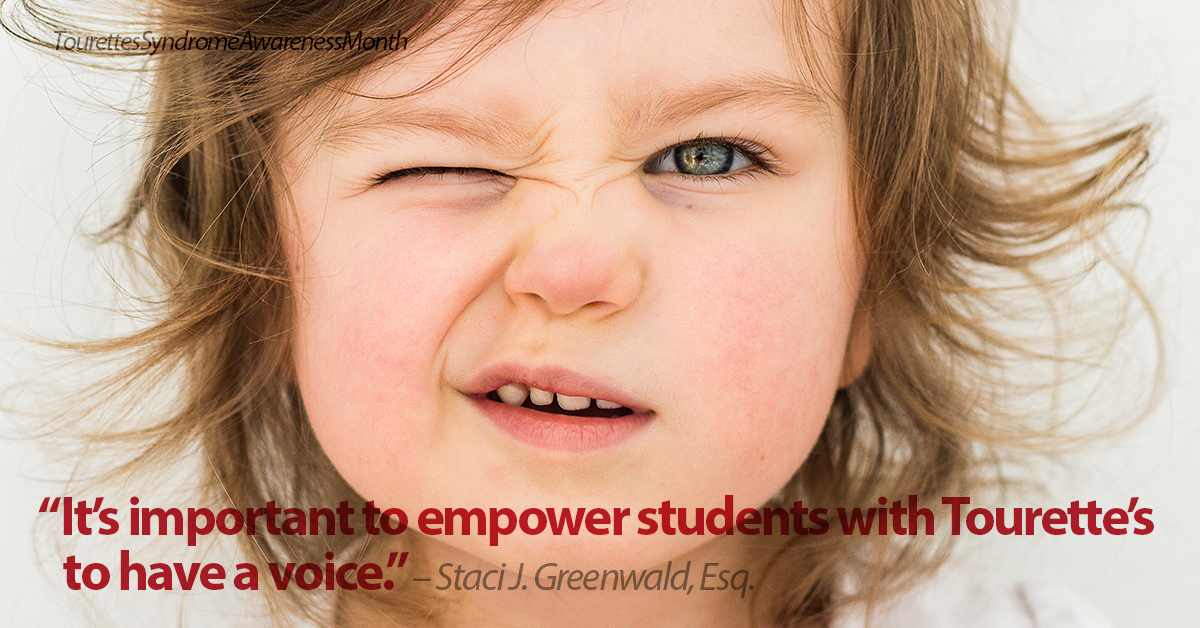By Theresa Sullivan, B.S, A.A.S.
Tourette syndrome (TS) is a neurological disorder characterized by sudden, repetitive, rapid, and unwanted movements or vocal sounds called tics. Symptoms are usually present in childhood, between the ages of 5 and 10 years, and peak during the teenage years. Tics are often aggravated by anxiety. This, and the fact that Tic Disorders are often co-existing with other conditions, may warrant special considerations in the learning environment.
According to the NJ Center for Tourette Syndrome (NJCTS), all students with TS need a tolerant and compassionate setting that both encourages them to work to their full potential and is flexible enough to accommodate their special needs. NJCTS offers support and resources for families affected by TS and associated disorders.
The Rehabilitation Act of 1973 protects individuals with disabilities from discrimination and ensures that students with disabilities have equal access to education as their non-disabled peers. Different accommodations and supports can be provided based on a student’s needs.
To meet the criteria for a Section 504 Plan under the Act, a student must have a substantial limitation of at least one major life activity, such as listening, sitting still, speaking, or learning. Accommodations should then be provided to remediate this impairment, to “even the playing field.”
For a student with Tourette Syndrome, accommodations may be as simple as taking tests in a separate room, not being penalized for poor handwriting, allowance of a fidget item or movement breaks, or being permitted to step into the hall, but they may make all the difference to a student who would otherwise agonize over an uncontrolled condition.
While the special education system was intended to be student and parent-friendly, some school districts may disagree with a student’s need for supports. It is therefore important to empower students with Tourette’s to have a voice. Partner, Staci Greenwald, has worked with families in that very situation as a frequent guest lecturer on special education rights through the NJCTS organization. She has also volunteered her time working directly with students with Tourette’s at the NJCTS annual weekend symposium where she empowers students to have a voice in their education. Sussan, Greenwald, and Wesler can help you obtain an appropriate accommodation plan. Contact our office to arrange a consultation so that we can answer any questions you may have.


